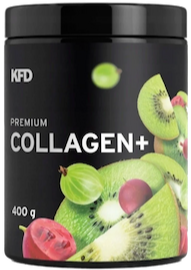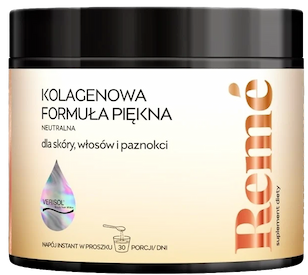Collagen bone broth - soup recipe and benefits
Collagen soup for joints and beyond.


Learn more about our editorial process
.

Learn more about our editorial process
.

Learn more about our editorial process
.

Learn more about our editorial process
.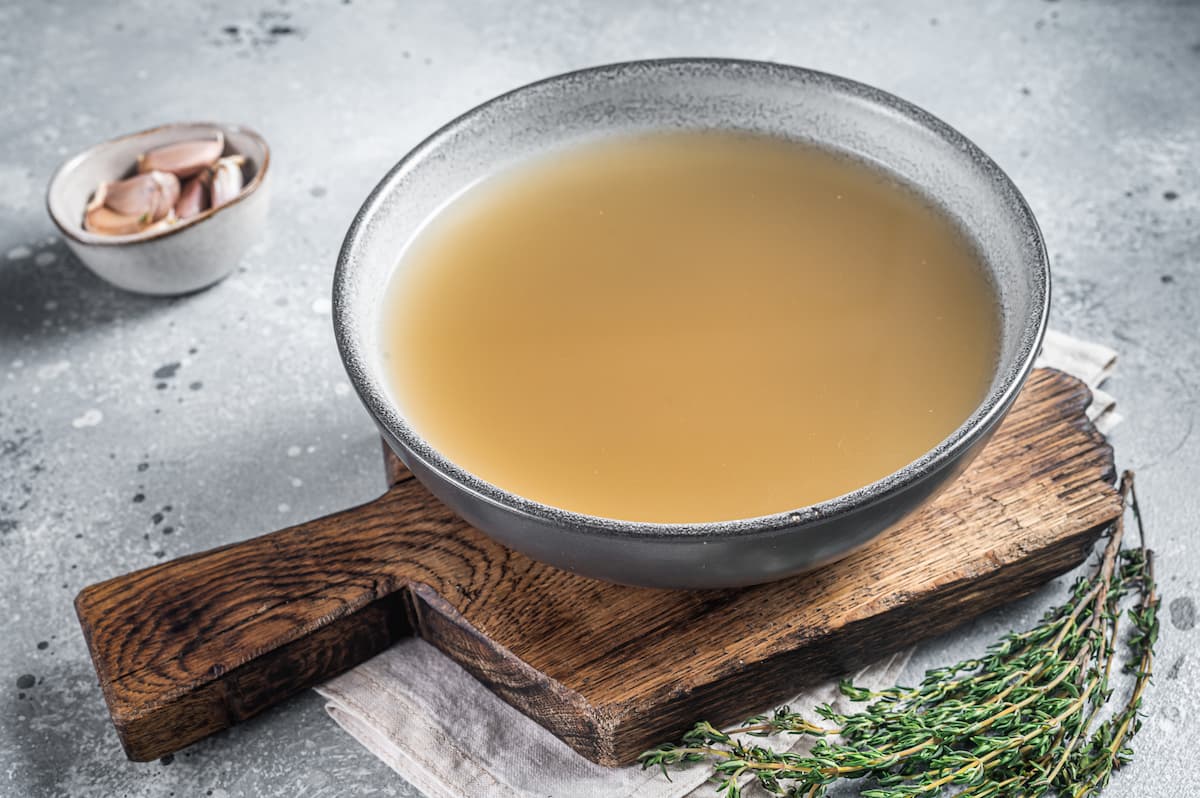
Why you can trust us
Articles on Natu.Care are written based on scientific research, data from government websites and other reliable sources. The texts are written in cooperation with doctors, nutritionists and other health and beauty experts. Articles are reviewed before publication and during significant updates.
.Learn more about our editorial process
.Information about advertisements
Content on Natu.Care may contain links to products from the sale of which we may receive a commission. When creating content, we adhere to high editorial standards and take care to be objective about the products discussed. The presence of affiliate links is not dictated by our partners, and we select the products we review ourselves completely independently.
.Learn more about our terms and Conditions
.You don't live to eat, but you eat to live. So if you want firm skin, shiny hair, strong nails and healthy joints then you should make sure you eat a collagen diet. And one of the products richest in the protein of youth is collagen broth.
Today, therefore, together with clinical nutritionist Aleksandra Cudna-Bartnicka, I'm going to introduce you to the best recipe for collagen broth, known worldwide as bone broth
From this article you will learn:
- What is the recipe for a healthy collagen soup.
- How much collagen is provided by collagen broth.
- What effects it can have on your health.
- How much collagen is good for your health?
- Is it much better than "grandma's" broth.
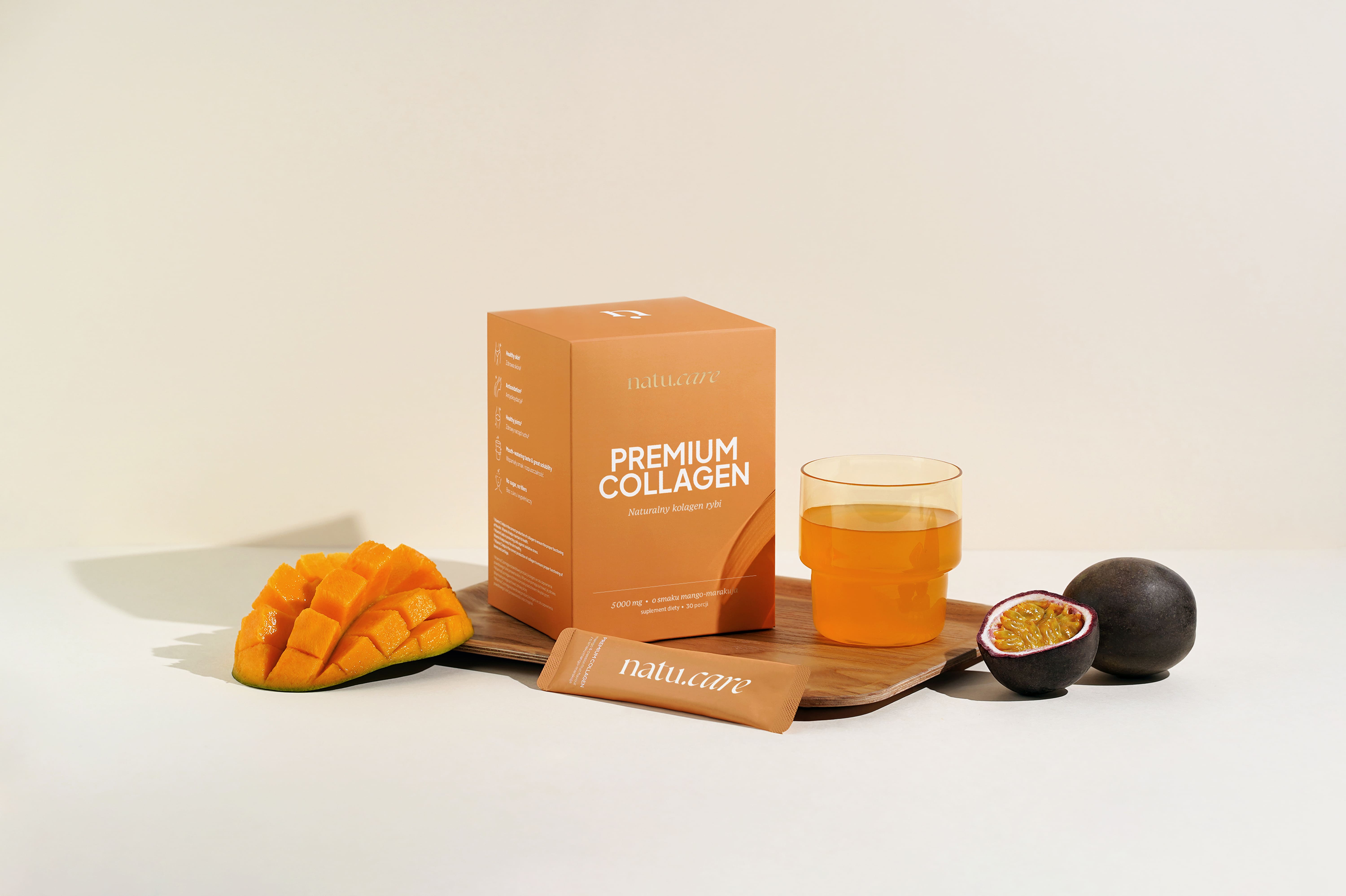
Sprawdź, za co pokochały go tysiące klientek Kolagen Premium 5000 mg, mango-marakuja
Natu.Care Kolagen Premium 5000 mg, mango-marakuja
Natu.Care Kolagen Premium dla zdrowia stawów, skóry, paznokci i włosów. Najlepsza przyswajalność. Optymalna dawka 5 000 lub 10 000 mg. Przebadany przez niezależne laboratorium.
Zobacz więcej
Wybrałam kolagen Natu.Care, ponieważ miał super opinie – a to było dla mnie bardzo ważne! Odkąd go stosuję, moja skóra znacznie się poprawiła i jest nawilżona, a na głowie pojawiły się nowe "baby hair".@Kasia S.
See also:
- The best collagen on the market
- Best collagen for nails
- Best collagen for face
- Best collagen for wrinkles
- Best collagen for skin
- Best collagen for joints
- Best collagen for hair
- Best collagen for cellulite
- Best collagen for acne
- Best collagen for stretch marks
- Best collagen for scars
- Best collagen for bones
- Best collagen for drinking and collagen for drinking (effects)
What is collagen broth?
Collagen broth is a collagen-rich broth that is made by long-cooking animal bones such as chicken feet or beef bones. Slow cooking extracts the collagen protein from the bones and dissolves it in water. This is a similar process to the production of gelatine.
Collagen broth - recipe
The recipe for collagen broth (liquid gold) is very simple. You will only need a few ingredients for it, and some of them are similar to those you use in collagen broth. What is the recipe for collagen broth?
Ingredients
- 1 kg chicken feet
- 2 kg marrow bones (calf, pork or beef)
- ½ kg poultry giblets (e.g. liver)
- 3 parsnips
- 4 carrots
- ½ celery
- 1 leek
- 3 l water
- leaves of bay leaf
- cooking spices
- English herb
- salt
- pepper
How to make collagen broth
- Begin by washing the "meat" ingredients thoroughly.
- Broth the chicken.
- Place the chicken feet, marrow bones and giblets in a large pot and pour water over the whole thing.
- Pour the water over the chicken feet.
- Bring the stock to the boil.
- When boiling, set the heat to minimum and leave to simmer for a long time - from 6 to as long as 36 hours (the longer, the more collagen the stock will have).
- While the broth is cooking, chop the vegetables into smaller pieces.
- Approximately 2 hours before the end of cooking, add all the vegetables and season as desired.
- After the collagen stock is "cooked", drain the vegetables and bones.
You can pour the collagen broth into smaller jars and store in the fridge for about 7 days. In the freezer, on the other hand, it will retain its properties for up to 6 months.
See also:
How much collagen does collagen broth provide?
On the internet you'll find hundreds of sites that claim that broth is one of the best sources of collagen. But none (of the ones I found) state how much accurately collagen soup made from chicken feet and marrow bones will provide you with the protein of your youth.
That's why we decided to put it to the test. We cooked the collagen broth according to the recipe above, poured it into a jar and... sent it to the laboratory. That's right - the experts checked how much collagen the collagen soup from our recipe would provide you with.
The results are in.
Results
A few weeks before we received the results, we also did a mini competition. The task was simple - guess how much collagen chicken feet collagen broth would provide per 100g. The shots of my editorial colleagues were very divergent. Some people were betting on a value oscillating between 1.5 and 2 grams. But others were convinced that it would be more like 0.1 grams or even 0.0025 grams.
So, how much collagen is in chicken bone broth?
Collagen soup contains exactly 1.15% collagen. So assuming that 1 ml = 1 gram, then 100 ml of collagen broth from chicken feet will provide you with just over 1 gram of collagen. A standard soup bowl holds 500 ml. That's about 5.75 grams of collagen per serving.
It's a lot of collagen.
How does the broth compare with the competition?
Very well. Compared to other products, collagen broth really provides a lot of collagen. Studies that check the youth protein content of individual products are few, but we were able to find some information on the subject:
| Product | Grams of collagen per 100g of productand |
| Beef tendon | 7.56 |
| Chicken thigh with skin | 7.56 |
| 2.52 | |
| Pork loin | 1,90 |
| Beef rib | 1,64 |
| Pork belly | |
| Skinless chicken thigh | 1,39 |
| Pork breast | 1,39 |
| Beef shoulder meat | 1.39 |
| Beef shoulder. | 1,32 |
| Pork ham | 1,23 |
| Collagen broth | 1,15 |
| Beef on the side | 0.97 |
| Chicken breast | 0,80 |
| Beef tenderloin | 0.80 |
| Beef tenderloin | 0.41 |
So if I eat broth every day, my skin will be firmer?
Collagen broth has a lot of collagen, but it is also not lacking in fat and kilocalories. Per 100g you will find the following in it:
- energy value - 73 kcal,
- cholesterol - 3.2 mg,
- total fat content - 6.28%,
And secondly it natural collagen has a much higher molecular weight than that in supplements. We are talking about values of: 3000-6000 daltons in hydrolysate and 285 000-300 000 daltons in natural collagen. The difference is huge, so it's very possible, that of those 5 grams you take in as collagen broth, your body will use much less.
Study
In 2018, a study was conducted that analysed popular bone broth dishes to assess the amount and consistency of amino acid content. The researchers' work suggested that the amino acid concentrations in bone broth prepared according to a standardised recipe were significantly lower than those provided by a potentially therapeutic dose of collagen supplements. Furthermore, bone broths also showed high amino acid variabilityand
Is collagen broth better than 'standard' broth?
In addition to the collagen content of collagen broth from chicken feet, we also decided to find out how much youthful protein is provided by "standard, grandma's broth". After all, hardly anyone makes broth on marrow bones and chicken feet every day (or at least every Sunday).
So we additionally made a standard broth - instead of beef bones and giblets, we made it with a chicken and beef base. Then we also packed the whole thing in a jar and sent it to the laboratory.
Results
The results were even more surprising than with the collagen broth. For it turned out that the standard broth had (almost) as much collagen as the 'collagen' one. Let me remind you, that in the typical collagen soup there was 1.15% collagen. In contrast, in a standard broth, there is 1.12% collagen.
Therefore, if you want to take care of extra collagen in your body, you don't need to run to the shop for marrow bones or giblets at all. Make a normal broth, as it is just as good as the 'collagen' one.
What can you use collagen broth for?
For eating - that's obvious. Beyond that, however, there are some interesting ways you can smuggle some collagen into other dishes. What functions can such a broth serve?
- Basis for other soups
- Addition to dressings or sauces, as a substitute for oil.
- A base for other dishes.
- Basis for dishes such as stews or risottos.
- Addition to sauces such as dill.
- Addition to vegetable purées, e.g. with potatoes.
- Basis for jelly (so-called cold legs).
- Basis for jelly.
Collagen soup - properties and effects
Collagen soup can support your body in a number of different ways. Taking adequate portions of collagen supports your skin, hair, nails and also your joints. What exact properties does collagen broth have?
Promotes skin condition
Collagen is a protein that makes up about 75% of the skin. It is responsible for maintaining the firmness, elasticity and youthful appearance of the complexion. By penetrating into the deep layers of the skin, collagen promotes the production of new cells, supports the maintenance of hydration levels and minimises the appearance of wrinklesand
Also, consuming collagen soup can counteract the skin ageing process associated with the loss of natural collagen in the body that occurs with age. Therefore, regular consumption of collagen, such as in the form of a broth, can help to improve skin elasticity, improve its overall condition and provide a natural, healthy glow.
Promotes joint health
Collagen is important for joint health. This protein forms a network that connects bones and joints, providing resilience and cushioning. As we age, the body produces less and less collagen, leading to joint degenerationand.
Bone decoction for joints can provide the body with the amino acids necessary for collagen production, improving joint health. Collagen's anti-inflammatory properties can also help to relieve joint pain, which is particularly important for people suffering from rheumatoid arthritis and osteoporosis.
Bones for joints can help to improve joint health.
Strengthens hair and nails
Collagen plays a key role in the health of hair and nails. This protein strengthens hair follicles and improves hair texture, resulting in stronger, thicker and shinier hair. And when it comes to nails, consuming collagen soup can improve their condition, stimulating growth and preventing breakageand.
Collagen also provides the amino acids needed to build keratin, the main component of hair and nails, making them stronger and healthier.
Increases immunity
Collagen can influence the health of your immune system by supporting digestion. It affects the health of the intestinal mucosa, which helps to balance the gut flora - a key component of a healthy immune systemand.
Collagen soup provides the amino acids that the digestive system needs to regenerate, which translates into an increased ability for the body to defend itself against infection and disease. Regular consumption of such a broth can therefore help to improve the body's overall immunity.
What ingredients besides collagen does the broth provide?
Collagen is not everything - our broth recipe is also a source of many other valuable nutrients. What else will collagen soup provide you with?
Protein
Meat is an excellent source of protein essential for many functions in the body. Protein is important for muscle building, cell repair and enzyme production. Furthermore, proteins from meat are so-called 'complete proteins' as they contain all the essential amino acids for the body's healthand
Proteins not only provide all the essential amino acids for the body. You also get them in both the right ratio and quantity.

Aleksandra Cudna-Bartnicka Clinical nutritionist
Minerals
- Calcium. Calcium is a key mineral for the health of bones and teeth, as it is their main component. It also finds its use in the processes of muscle contraction and nerve impulse conductionand
- Magnesium. Magnesium is essential for proper muscle function and metabolism. It also plays a role in protein synthesis and maintaining dental and bone healthandi.
- Phosphorus. Phosphorus works with calcium to support the formation of strong bone and tooth structure. It also influences the building of ATP, or the maintenance of energy at a cellular leveland
- Sodium and potassium Sodium and potassium are the two main electrolytes in the body that help maintain a normal fluid balance. Both substances are also important for the proper functioning of the nervous systemand
Amino acids
Collagen broth is also particularly rich in amino acids such as glycine and proline, which are essential for collagen production in the body. In addition, glycine has a calming effect on the nervous system and has a positive effect on the quality of sleep. Proline, on the other hand, speeds up the wound healing process and has an effect on joint healthand
Vitamins
- Vitamin A (beta-carotene). Beta-carotene, found especially in carrots, is a precursor to vitamin A. It is essential for eye health, skin health, and also plays an important role in the immune response
- B vitamins B vitamins, which are found in many vegetables, are crucial for metabolism, energy production and maintaining nervous system health
Remember, however, that most vitamins will be destroyed in collagen broth. Therefore, their content will be very low.
Collagen broth - contraindications
Collagen broth is an interesting addition to the diet for most people, but consumption of this broth may not be advisable when you are affected by:
- Food allergies. If you have an allergy to one of the ingredients in the broth, such as poultry, beef or any of the vegetables, you should avoid this dish. Allergic reactions can be very serious and even pose a health risk.
- Kidney diseases. High levels of protein in broth can create an extra burden on the kidneys, so people suffering from diseases of these organs should be careful with its consumption.
- History of gallstones. Eating large amounts of fatty foods, such as bone marrow-based broth, can contribute to gallstones.
- Restrictive diets. Collagen broth, due to its relatively high fat content, may not suit some restrictive diets such as the DASH, vegan or low-fat diets.
Collagen broth and cholesterol
Cholesterol intake should be limited to about 300 mg per day. Collagen broth is not a significant source of cholesterol, as it contains about 3.2 mg of cholesterol per 100 g. In comparison, one egg contains about 187 mg.
Collagen broth - reviews
I've been drinking collagen broth regularly for a few months now and I'm really pleased. It tastes great and the skin looks healthy. I recommend it!
Tomasz38 years old
I've been trying collagen broth in my kitchen for a while now, but it's too oily every time. Maybe I'm doing something wrong. I don't know.
Emilia45 years old
I can't imagine a week without my collagen broth. It's perfect as a base for soups and stews. Not only does it taste brilliant, it has so many health benefits.
Kinga27 years old
I love broths, but the collagen one is too oily for me. I prefer lighter options. But if you like intense flavour, you might like it.
Wioletta50 years old
I tried drinking collagen broth systematically for several months and noticed no change. In addition, it is very oily - not recommended.
Marek60 years old
Collagen broth vs. supplement - comparison
The molecular weight of these supplements is around 3,000 daltons, which makes them well absorbed in the body.
|
Collagen broth |
Collagen supplement |
||
|
Dose |
In a standard serving, the collagen broth will provide you with approximately 5 grams of collagen. |
Most supplements also have a dosage of around 5 grams. However, you can also easily find preparations that provide approx. 10 grams of collagen hydrolysate |
|
|
Usability |
Collagen broth provides collagen in its natural form, which has a molecular weight of approximately 300 000 daltonsand |
When choosing hydrolysed collagen, you can count on excellent bioavailability. The molecular weight of these supplements is around 3,000 daltons, which makes them well absorbed in the body. |
|
|
Ease of preparation |
|||
|
Cooking collagen broth requires up to a few tens of hours of vigilance at the pot. |
Preparation is easy. |
Collagen supplements are either already ready-to-eat (capsules or liquid), or require only the dilution of powder in water. |
|
|
Enjoyable to consume |
Collagen broth is quite oily, so it will not always be to everyone's taste. |
Collagen powders or liquids are not infrequently enriched with an additional flavour (e.g. fruity), which enhances the enjoyment of supplementation and makes it easier to add to dishes |
|
|
Additional active ingredients |
Collagen broth will provide you with additional active ingredients - but in small portions. High temperatures will destroy most vitamins and minerals |
Collagen supplements very often also contain active supplements. Not only do they support the overall health of the body, but they also support the body's production of collagen. |
See also:
Alternatives to broth - the best collagen supplements
Natu.Care Collagen Premium 5000 mg, mango-maracuja

- Collagen content: 5000 mg marine collagen hydrolysate
- .
- Additional active ingredients: vitamin C, low molecular weight hyaluronic acid (and L-theanine and coenzyme Q10 in cocoa flavoured collagen or vitamin A and vitamin E in mango–passion fruit flavoured collagen)
- .
- Form: powder sachets
- .
- Dose: 1 sachet per day
- .
- Sufficient for: 30 days
- .
Product description
Fish collagen from the Natu.Care brand in a dose of 5000 mg. The formula contains a sufficient portion of the active substance to positively affect your joints, musculoskeletal system and immunity.
Take care of your tendons, joint cartilage, ligaments, muscles and even bones by supplying them with the building blocks to function properly. Move without bólu and provide the necessary support for any physical activity.
And as a „gratis” to regular supplementation, you will also receive firm skinóhand, healthy and shiny hair and strong nails.
Natu.Care Premium Collagen is available in two flavours – Cacao Bloom and Rise&Shine. Both formulas are based on the following active ingredients: marine collagen hydrolysate, wild roseóbud extract and hyaluronic acid.
Additionally, Cacao Bloom contains natural L-theanine, coenzyme Q10 and defatted Dutch cacao. Rise&Shine instead contains vitamin E and vitamin A.
These are the best collagens in the world.
These best fish collagens on the market also rós taste – Cacao Bloom is a treat for chocolate lovers. Rise&Shine will appeal to those whoóenjoy the refreshing taste of mangoófruit and passion fruit.
Pros and cons
Fish collagen from the Natu.Care brand in a dose of 5000 mg. The formula contains a sufficient portion of the active substance to positively affect your joints, musculoskeletal system and immunity.
Take care of your tendons, joint cartilage, ligaments, muscles and even bones by supplying them with the building blocks to function properly. Move without bólu and provide the necessary support for any physical activity.
And as a „gratis” to regular supplementation, you will also receive firm skinóhand, healthy and shiny hair and strong nails.
Natu.Care Premium Collagen is available in two flavours – Cacao Bloom and Rise&Shine. Both formulas are based on the following active ingredients: marine collagen hydrolysate, wild roseóbud extract and hyaluronic acid.
Additionally, Cacao Bloom contains natural L-theanine, coenzyme Q10 and defatted Dutch cacao. Rise&Shine instead contains vitamin E and vitamin A.
These are the best collagens in the world.
These best fish collagens on the market also rós taste – Cacao Bloom is a treat for chocolate lovers. Rise&Shine will appeal to those whoóenjoy the refreshing taste of mangoófruit and passion fruit.
Additional information
Fish collagen from the Natu.Care brand in a dose of 5000 mg. The formula contains a sufficient portion of the active substance to positively affect your joints, musculoskeletal system and immunity.
Take care of your tendons, joint cartilage, ligaments, muscles and even bones by supplying them with the building blocks to function properly. Move without bólu and provide the necessary support for any physical activity.
And as a „gratis” to regular supplementation, you will also receive firm skinóhand, healthy and shiny hair and strong nails.
Natu.Care Premium Collagen is available in two flavours – Cacao Bloom and Rise&Shine. Both formulas are based on the following active ingredients: marine collagen hydrolysate, wild roseóbud extract and hyaluronic acid.
Additionally, Cacao Bloom contains natural L-theanine, coenzyme Q10 and defatted Dutch cacao. Rise&Shine instead contains vitamin E and vitamin A.
These are the best collagens in the world.
These best fish collagens on the market also rós taste – Cacao Bloom is a treat for chocolate lovers. Rise&Shine will appeal to those whoóenjoy the refreshing taste of mangoófruit and passion fruit.
User review
Fish collagen from the Natu.Care brand in a dose of 5000 mg. The formula contains a sufficient portion of the active substance to positively affect your joints, musculoskeletal system and immunity.
Take care of your tendons, joint cartilage, ligaments, muscles and even bones by supplying them with the building blocks to function properly. Move without bólu and provide the necessary support for any physical activity.
And as a „gratis” to regular supplementation, you will also receive firm skinóhand, healthy and shiny hair and strong nails.
Natu.Care Premium Collagen is available in two flavours – Cacao Bloom and Rise&Shine. Both formulas are based on the following active ingredients: marine collagen hydrolysate, wild roseóbud extract and hyaluronic acid.
Additionally, Cacao Bloom contains natural L-theanine, coenzyme Q10 and defatted Dutch cacao. Rise&Shine instead contains vitamin E and vitamin A.
These are the best collagens in the world.
These best fish collagens on the market also rós taste – Cacao Bloom is a treat for chocolate lovers. Rise&Shine will appeal to those whoóenjoy the refreshing taste of mangoófruit and passion fruit.
Natu.Care Collagen Premium 10000 mg, cherry

- Collagen content: 10,000 mg of hydrolyzed bovine collagen
- Additional active ingredients: vitamin C, low molecular weight hyaluronic acid, glucosamine, chondroitin, extract of Indian frankincense resin (boswellia serrata)
- Form: powder sachets for drinking
- Serving: 1 sachet per day
- Lasts for: 30 days
Product description
One of the strongest collagens on the market, providing as much as 10,000 mg per daily serving. This product can effectively support the condition of joints, skin, hair, and nails.
With this supplement, you will support your skeletal and joint system as well as your beauty, helping you visually halt the aging process and feel rejuvenated!
Pros and cons
Pros:
- The daily portion of collagen is very large – as much as 10,000 mg.
- Proven collagen formula – COLLinstant, whose effectiveness has been confirmed in clinical studies.
- Effective dose of hyaluronic acid, which additionally moisturizes the skin and positively affects joint health.
- Vitamin C supports the body's natural collagen production.
- Glucosamine is a fundamental building block of compounds found in joint cartilage and a component of collagen that gives elasticity to connective tissue in tendons.
- Chondroitin is a natural component found in the human body, mainly in cartilage. This large molecule (mucopolysaccharide) has the ability to absorb water, which helps maintain the elasticity and resilience of cartilage.
- Frankincense resin extract supports blood circulation and joint mobility and reduces their stiffness. It may help alleviate inflammatory conditions.
- The composition has been tested by the independent and accredited J.S. Hamilton laboratory.
Cons:
- None.
Additional information
Users praise Natu.Care Collagen Premium for the easy dissolving of the powder.
ALLDEYNN Collarose Fish
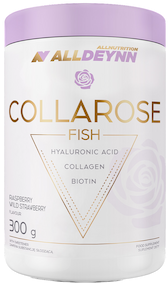
- Collagen content: 5000 mg hydrolysate fish collagen VERISOL F® .
- Additional active ingredients: vitamin C, hyaluronic acid, biotin
- Form: powder to dissolve in water .
- Dose: one scoop (6 g) of powder daily .
- Sufficient for: 50 days .
Product description
Atlantic cod collagen VERISOL F® contained in the formula are easily absorbed collagen peptides of fish origin. Regular supplementation can firm your skinóhand and slow down the ageing process. Your nails will become stronger and stop breaking. The addition of biotin will improve the condition of your hairów. The collagen portion is high enough to also have a good effect on your joints, muscles and bones.
Pros and cons
Atlantic cod collagen VERISOL F® contained in the formula are easily absorbed collagen peptides of fish origin. Regular supplementation can firm your skinóhand and slow down the ageing process. Your nails will become stronger and stop breaking. The addition of biotin will improve the condition of your hairów. The collagen portion is high enough to also have a good effect on your joints, muscles and bones.
Additional information
Atlantic cod collagen VERISOL F® contained in the formula are easily absorbed collagen peptides of fish origin. Regular supplementation can firm your skinóhand and slow down the ageing process. Your nails will become stronger and stop breaking. The addition of biotin will improve the condition of your hairów. The collagen portion is high enough to also have a good effect on your joints, muscles and bones.
Expert and user opinion
Atlantic cod collagen VERISOL F® contained in the formula are easily absorbed collagen peptides of fish origin. Regular supplementation can firm your skinóhand and slow down the ageing process. Your nails will become stronger and stop breaking. The addition of biotin will improve the condition of your hairów. The collagen portion is high enough to also have a good effect on your joints, muscles and bones.
DuoLife Collagen fish collagen 2500 mg
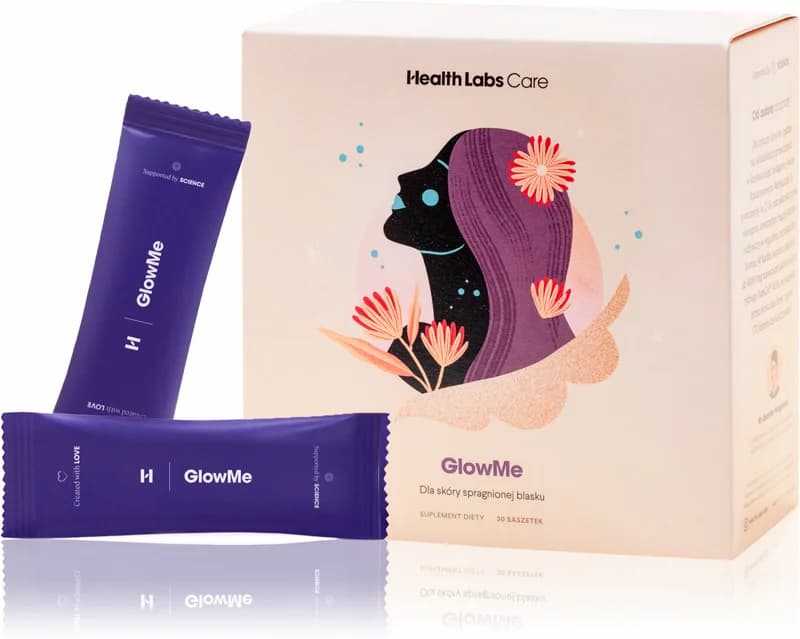
- Collagen content: 2500 mg collagen
- Additional active ingredients: vitamin C, silicon, glucosamine, hyaluronic acid, nettle and bamboo extracts
- Form: liquid to drink .
- Dose:25 ml .
- Sufficient for: 30 days .
Product description
100% natural collagen liquid without unnecessary ingredientsós. The composition of ingredientsós improves the appearance and condition of skinóry, hairów, nails. DuoLife is a good choiceór if you notice the first signs of skinóry ageing or want to stop this process. A tasty liquid, convenient to use.
Pros and cons
100% natural collagen liquid without unnecessary ingredientsós. The composition of ingredientsós improves the appearance and condition of skinóry, hairów, nails. DuoLife is a good choiceór if you notice the first signs of skinóry ageing or want to stop this process. A tasty liquid, convenient to use.
Additional information
100% natural collagen liquid without unnecessary ingredientsós. The composition of ingredientsós improves the appearance and condition of skinóry, hairów, nails. DuoLife is a good choiceór if you notice the first signs of skinóry ageing or want to stop this process. A tasty liquid, convenient to use.
User review
100% natural collagen liquid without unnecessary ingredientsós. The composition of ingredientsós improves the appearance and condition of skinóry, hairów, nails. DuoLife is a good choiceór if you notice the first signs of skinóry ageing or want to stop this process. A tasty liquid, convenient to use.
Pharmovit liquid collagen 10000 mg
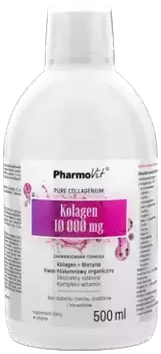
- Collagen content: 10000 mg hydrolysed bovine collagen types I and III .
- Additional active ingredients: hyaluronic acid, natural plant extracts, vitamin C, B vitamins, zinc, vitamin D
- Form: vials .
- Dose: 25 ml .
- Sufficient for: 20 days .
Product description
A solid daily dose of collagen for jointómuscle and bone health and beauty. The duo of collagen and vitamin C has a positive effect on each other, so that „the protein of youth” is better absorbed and more efficiently produced in the body.
Pros and cons
A solid daily dose of collagen for jointómuscle and bone health and beauty. The duo of collagen and vitamin C has a positive effect on each other, so that „the protein of youth” is better absorbed and more efficiently produced in the body.
Additional information
A solid daily dose of collagen for jointómuscle and bone health and beauty. The duo of collagen and vitamin C has a positive effect on each other, so that „the protein of youth” is better absorbed and more efficiently produced in the body.
KFD Premium Collagen+
Product description
High dose of collagen and a real bomb of vitamins C and D and organic sulphur. With this preparation the effects will come immediately. You will improve the firmness of your skin and reduce wrinkles. Your hair and nails will be strong and shiny.
A generous dose of collagen will improve the mobility of your jointsós, benefit your bone system and muscles. Do you do sports and need a product thatós able to keep up with your needs? This product will do the trick.
Pros and cons
High dose of collagen and a real bomb of vitamins C and D and organic sulphur. With this preparation the effects will come immediately. You will improve the firmness of your skin and reduce wrinkles. Your hair and nails will be strong and shiny.
A generous dose of collagen will improve the mobility of your jointsós, benefit your bone system and muscles. Do you do sports and need a product thatós able to keep up with your needs? This product will do the trick.
Additional information
High dose of collagen and a real bomb of vitamins C and D and organic sulphur. With this preparation the effects will come immediately. You will improve the firmness of your skin and reduce wrinkles. Your hair and nails will be strong and shiny.
A generous dose of collagen will improve the mobility of your jointsós, benefit your bone system and muscles. Do you do sports and need a product thatós able to keep up with your needs? This product will do the trick.
Expert opinion
High dose of collagen and a real bomb of vitamins C and D and organic sulphur. With this preparation the effects will come immediately. You will improve the firmness of your skin and reduce wrinkles. Your hair and nails will be strong and shiny.
A generous dose of collagen will improve the mobility of your jointsós, benefit your bone system and muscles. Do you do sports and need a product thatós able to keep up with your needs? This product will do the trick.
Product description
The dietary supplement from Remé contains beef collagen in a patented formula and vitamin C, whichóra aids its absorption. The formula comes in three flavours: neutral, orange-maracuja and strawberry-pomegranate. The formula can effectively support and improve the condition of the skinóry, hairóry and nails.
Pros and cons
The dietary supplement from Remé contains beef collagen in a patented formula and vitamin C, whichóra aids its absorption. The formula comes in three flavours: neutral, orange-maracuja and strawberry-pomegranate. The formula can effectively support and improve the condition of the skinóry, hairóry and nails.
Additional information
The dietary supplement from Remé contains beef collagen in a patented formula and vitamin C, whichóra aids its absorption. The formula comes in three flavours: neutral, orange-maracuja and strawberry-pomegranate. The formula can effectively support and improve the condition of the skinóry, hairóry and nails.
The dietary supplement from Remé contains beef collagen in a patented formula and vitamin C, whichóra aids its absorption. The formula comes in three flavours: neutral, orange-maracuja and strawberry-pomegranate. The formula can effectively support and improve the condition of the skinóry, hairóry and nails.
{ product:79xJ837577CXMeAaitlc1V }}

Sprawdź, za co pokochały go tysiące klientek Kolagen Premium 5000 mg, mango-marakuja
Natu.Care Kolagen Premium 5000 mg, mango-marakuja
Natu.Care Kolagen Premium dla zdrowia stawów, skóry, paznokci i włosów. Najlepsza przyswajalność. Optymalna dawka 5 000 lub 10 000 mg. Przebadany przez niezależne laboratorium.
Zobacz więcej
Wybrałam kolagen Natu.Care, ponieważ miał super opinie – a to było dla mnie bardzo ważne! Odkąd go stosuję, moja skóra znacznie się poprawiła i jest nawilżona, a na głowie pojawiły się nowe "baby hair".@Kasia S.
See also:
- How to choose collagen
- How to choose collagen to drink
- How to choose collagen powder
- How to choose collagen in sachets
- How to choose liquid collagen
- How to choose collagen in tablets
- How to choose collagen in capsules
- Human equine collagen: doctor and veterinarian opinion
- SeaGarden collagen: high quality collagen
Summary
- Collagen broth is a rich source of collagen, beneficial for skin, hair, nails and joints.
- The recipe for collagen broth includes ingredients such as chicken feet, marrow bones, poultry giblets and vegetables.
- Cooking the collagen broth should take between 6 and 36 hours.
- Each 100 ml of collagen broth provides approximately 1 gram of collagen.
- Collagen broth contains fat and cholesterol, both of which can have negative effects on health.
- Traditional broth has almost as much collagen as collagen broth.
- Collagen broth has almost as much collagen as collagen broth.
- Collagen broth can be used as a base for other soups and as an addition to sauces and dishes such as stews and risottos.
- Properties of collagen broth include: supporting skin health, positively influencing joint health, strengthening hair and nails and boosting immunity.
- Collagen broth also provides other important nutrients such as protein, minerals, amino acids and vitamins.
- Some groups of people, including those with food allergies, kidney disease and a history of gallstones, should avoid collagen broth or consult their doctor
FAQ
How to cook collagen broth
To cook collagen broth, prepare 1 kg of chicken feet, 2 kg of marrow bones, ½ kg of beef giblets, beef giblets and spices. Then put the 'meaty' ingredients in a pot, bring to the boil and then leave on a low heat for 6-36 hours (the longer, the better). Two hours before the end of cooking, add the vegetables and you're done.
What meat for collagen broth?
Most recipes, including ours, recommend using marrow bones, offal and chicken feet as the base for collagen broth. Therefore, we decided to check whether this was really necessary. As it turned out, broth cooked with a chicken and beef base has (almost) the same amount of collagen. Therefore, the choice of meat for collagen broth is rather arbitrary.
Does collagen broth need to be drunk on an empty stomach?
There are no specific recommendations for the consumption of collagen broth. You can drink it on an empty stomach as well as a full stomach.
Is collagen broth safe for people with heart disease?
The salt and fat content of broth can be unhealthy for people with heart disease, especially if they are on a low-sodium diet. Therefore, if you have heart disease, you should always consult your doctor before introducing new foods into your diet.
Can I drink collagen broth during pregnancy?
Collagen broth is generally safe for pregnant women, and may even have benefits such as supporting skin and joint health. However, it is key that the dish is prepared with good quality ingredients, avoiding meat from unreliable sources.
Is collagen broth good for children?
Collagen broth is safe for children. It contains protein that is important for their growth and development. However, make sure that the soup is properly seasoned and does not contain too much salt.
Is collagen broth suitable for vegans?
As a dish prepared mainly from meat and bones, collagen broth is not suitable for vegans. Those following a plant-based diet can look for an alternative way to supplement collagen, such as a menu rich in vitamins and minerals, which will support the body's production of the protein of youth.
Can I prepare collagen broth with other types of meat?
Of course, collagen broth can be made from different types of meat. Although marrow bones and chicken feet are the most popular, beef, lamb or fish are also excellent sources of collagen. Remember, however, that the flavour of the broth may vary depending on the meat you choose.
Sources
See all
Alcock, R. D., Shaw, G. C., & Burke, L. M. (2019). Bone Broth Unlikely to Provide Reliable Concentrations of Collagen Precursors Compared With Supplemental Sources of Collagen Used in Collagen Research. International Journal of Sport Nutrition and Exercise Metabolism, 29(3), 265-272. https://doi.org/10.1123/ijsnem.2018-0139
Asai, T., Takahashi, A., Ito, K., Uetake, T., Matsumura, Y., Ikeda, K., Inagaki, N., Nakata, M., Imanishi, Y., & Sato, K. (2019). Amount of Collagen in the Meat Contained in Japanese Daily Dishes and the Collagen Peptide Content in Human Blood after Ingestion of Cooked Fish Meat. Journal of Agricultural and Food Chemistry, 67(10), 2831-2838. https://doi.org/10.1021/acs.jafc.8b06896
Brągoszewska, E., & Biedroń, I. (2021). Efficiency of Air Purifiers at Removing Air Pollutants in Educational Facilities: A Preliminary Study. Frontiers in Environmental Science, 9 https://www.frontiersin.org/articles/10.3389/fenvs.2021.709718
Csordas, A., & Bernhard, D. (2013). The biology behind the atherothrombotic effects of cigarette smoke. Nature Reviews Cardiology, 10(4), Article 4. https://doi.org/10.1038/nrcardio.2013.8
Frias, D. P., Gomes, R. L. N., Yoshizaki, K., Carvalho-Oliveira, R., Matsuda, M., Junqueira, M. de S., Teodoro, W. R., Vasconcellos, P. de C., Pereira, D. C. de A., Conceição, P. R. da, Saldiva, P. H. N., Mauad, T., & Macchione, M. (2020). Nrf2 positively regulates autophagy antioxidant response in human bronchial epithelial cells exposed to diesel exhaust particles. Scientific Reports, 10(1), Article 1. https://doi.org/10.1038/s41598-020-59930-3
Gvozdjáková, A., Kucharská, J., Bartkovjaková, M., Gazdíková, K., & Gazdík, F. E. (2005). Coenzyme Q10 supplementation reduces corticosteroids dosage in patients with bronchial asthma. BioFactors (Oxford, England), 25(1-4), 235-240. https://doi.org/10.1002/biof.5520250129
Hsu, C.-H., Sun, H.-L., Sheu, J.-N., Ku, M.-S., Hu, C.-M., Chan, Y., & Lue, K.-H. (2008). Effects of the immunomodulatory agent Cordyceps militaris on airway inflammation in a mouse asthma model. Pediatrics and Neonatology, 49(5), 171-178. https://doi.org/10.1016/S1875-9572(09)60004-8
Máiz Carro, L., & Martínez-García, M. A. (2020). Use of Hyaluronic Acid (HA) in Chronic Airway Diseases. Cells, 9(10), Article 10. https://doi.org/10.3390/cells9102210
Editorials
Meet the team


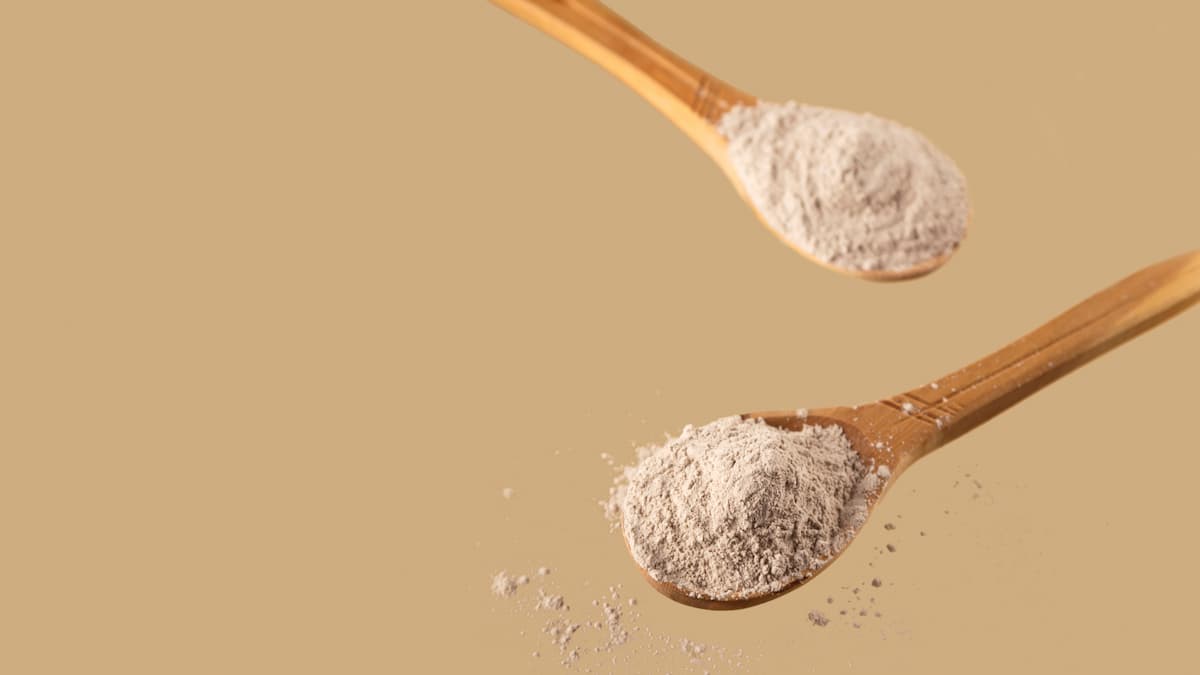
Everything you want to know about COLLinstant collagen.

Collibre collagen is an interesting supplement in shot form.

Solgar collagen with hyaluronic acid is a dietary supplement that supports skin and joint health.
